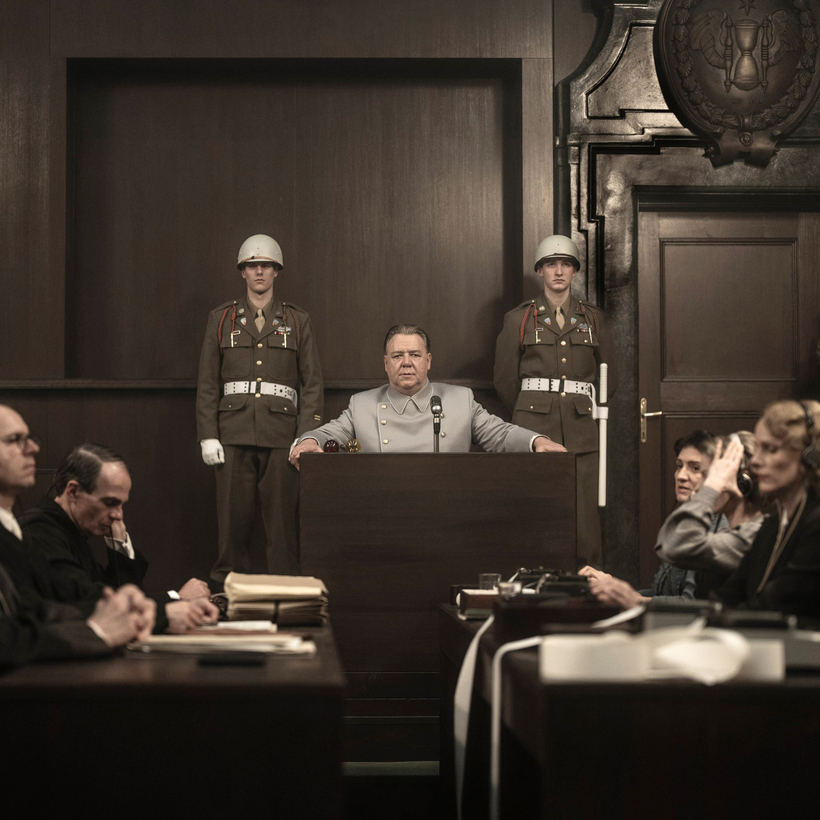The courtroom is a godsend to the movies. The stakes are life and death, the setting fits neatly on a soundstage, and the twists and turns are baked in: every successful trial is, by definition, a well-scripted play. So it’s actually a bit surprising that the most important legal process of all time—the Nuremberg trials, with the purest form of evil in the dock and the fate of international criminal law in the balance—has been dramatized by Hollywood only three times: in 1961’s Judgment at Nuremberg, directed by Stanley Kramer; a forgettable 2000 mini-series with Alec Baldwin; and a new film, simply titled Nuremberg, which is in theaters now.
One possible reason is that Kramer’s film is simply too towering an achievement to try to outdo. Shot 15 years after the trials themselves concluded, with an absurdly stacked cast (name another movie where Spencer Tracy, Burt Lancaster, Judy Garland, Maximilian Schell, and William Shatner share a scene!), it is a still-stunning treatise on the limits of collective responsibility. In order to make this very point, however, it wisely opts to skip the tribunal’s first and most sensational phase, with the likes of Göring and Hess on the stand.


